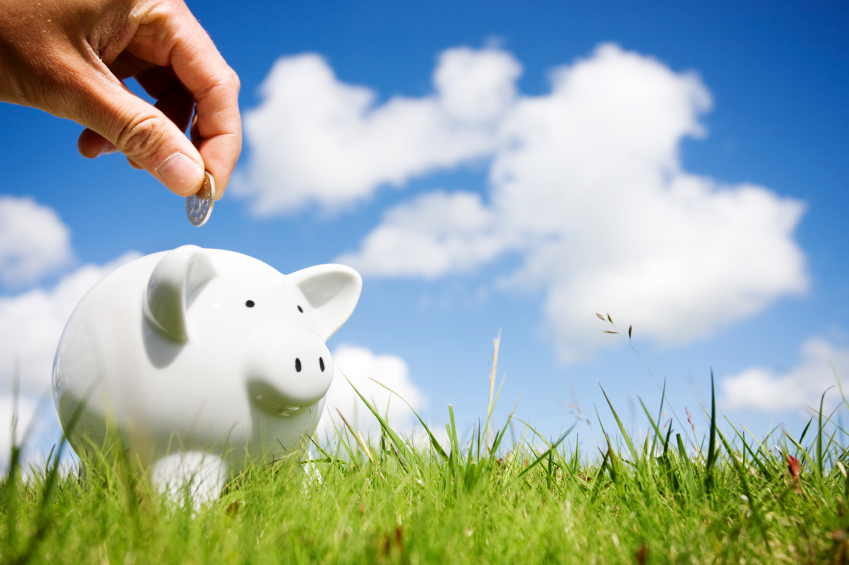Every day things are getting expensive these days. Homes are expensive. Clothing is expensive, especially if you want it new and not thrifted. Food gets more expensive every day. Near the top of everyone’s list of “stuff that is too expensive” is the cost of utilities. Heat, air conditioning, water, sewer costs, garbage pickup, even just turning on the lights–it all adds up to too much. But what if it didn’t have to? Here are some of the things every Canadian should be doing if they want to stop sending a solid chunk of every paycheck to their utility companies.

Shop Around
You probably won’t be able to set up alternative curbside pickup service for your trash (at least, not through a legitimate service) or for the delivery of your water. You can, however, search around for the best possible deals on power. Take advantage of the fact that we Canadians enjoy a deregulated energy industry, unlike most of our southern neighbors! Comparison shop over at http://www.albertaenergyproviders.com/atco-gas-and-electric-alberta/alberta/ (or whatever province you inhabit) to find deals on regular power, renewable power, natural gas, etc.
Practice Energy Efficiency
We talk about some of the things you can do to make your home more energy efficient in this post. Those suggestions, however, are just the beginning. Here are a few other basic things that you can do to increase your home’s energy efficiency:
- Only run full loads in your washer and dishwasher.
- Hang your clothes up to dry on a line instead of using your dryer.
- Take much shorter and cooler showers.
- Buy energy efficient appliances
- Employ solar chargers
Obviously there are more involved things you can do, but these habits are a great place to start.
Take Advantage of Your Property
Did you know that planting trees on your property can drastically reduce the amount of money you spend on energy? Trees provide shade, which dramatically reduces the temperature within your home and saves you tons of energy. Indoor plants filter the carbon dioxide out of the air and improve your home’s air quality, reducing your dependency on air filters and purifiers and even humidifiers.
Collecting rainwater reduces your dependency on your city’s water supply and can help prevent soil erosion and flooding on your property–especially if you hook the barrels up to your gutter system.
Building a compost pile in your yard reduces the amount of waste you throw away every day and provides you with nutrient rich, natural fertilizers to use on your lawn and with your other gardens and plants. You can even set up a worm bin in an apartment or on a porch or balcony to collect compost.
Get Out of the Kitchen
We’re not going to tell you to go out to dinner at a restaurant every night. We’re trying to help you save money, after all! Instead we’re going to encourage you to start grilling more often. Grilling is a perfectly acceptable way to cook your food. It tastes great, is often healthier, since the fat in your food simply drips off, and is cheaper than using your stove and oven every night.
Eating outdoors is also fun because it reduces the amount of electricity you’re using in the house.
Take Advantage of the Sun
Arrange your home to take as much possible advantage of whatever natural light comes in through your windows. This reduces your dependence on indoor lighting for reading, projects, etc. The more time the lights spend off, the less money you spend on your power bill.
You should spend as much time as possible outside. Fresh air and vitamin D (when the proper sun bock is applied, of course) are good for you! Head outside whenever you can; play games in the yard, go for walks, even reading on your porch is better than doing it indoors.
Haul it Yourself
Unless you live very rurally, we’re not going to tell you that getting your water from a well instead of from the city is a good option. What we’re talking about here is turning off curbside pickup for your garbage and recycling.
How far is it from your house to the local dump and recycling center? Does it cost money to dump your trash at the dump and to turn in your recyclables to the recycling center? Do those costs add up to more than you spend per month on curbside pickup? If they are more expensive, keep curbside pickup. If they are less, cancel it!
The point is that there are plenty of things you can do that do not involve complicated and expensive overhauls to your home. Use these tips to help you get started!



